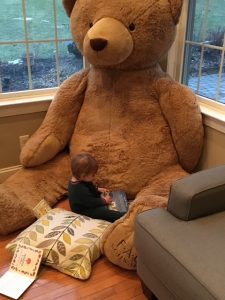 Many child development experts describe play as a way that children learn how object work and how to problem solve and how to understand how people think, feel and act. Play is a form of practicing real life. Through play, children build a lot of important skills, including communication, creativity, imagination, critical thinking, and social and emotional skills. Adults often view play as simply “fun,” but it is truly a child’s way of learning and it is critical for healthy development.
Many child development experts describe play as a way that children learn how object work and how to problem solve and how to understand how people think, feel and act. Play is a form of practicing real life. Through play, children build a lot of important skills, including communication, creativity, imagination, critical thinking, and social and emotional skills. Adults often view play as simply “fun,” but it is truly a child’s way of learning and it is critical for healthy development.
We can categorize two different types of play: free play and guided play.
During free play, the child is directing the play and it is largely open-ended. The child decides what to play with, how to play, and for how long. Free play is important in helping children learn to self-regulate, make simple decisions, and problem solve.
Guided play occurs when an adult literally guides the child’s play by following the child’s lead, but also participating, prompting and assisting the child to create new learning. A balance of both types of play create optimal development.
References:
Zero to Three. (2018). The Growing Brain.

